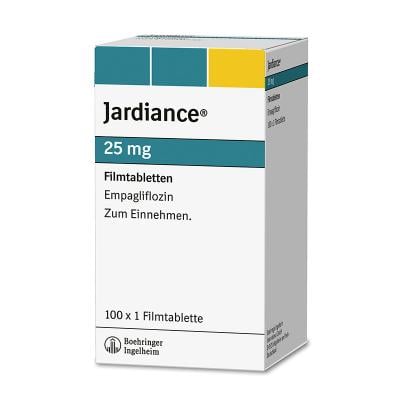
October 11, 2018 — Novel results from the landmark EMPA-REG OUTCOME trial suggest that treatment with Jardiance positively impacts life expectancy in adults with type 2 diabetes and established cardiovascular disease. Using actuarial methods, and assuming that the demonstrated beneficial effects of Jardiance remain consistent with long-term use, Jardiance was estimated to extend life expectancy by 1 to 4.5 years on average, depending on age, when compared with placebo. This analysis suggests that treatment with Jardiance could add years of life. The results were published in the journal Circulation.1
In an analysis of data from 7,020 people included in the EMPA-REG OUTCOME trial, estimated life expectancy increased across all ages when adults were treated with Jardiance as compared to those treated with placebo. Specifically, estimated mean survival in people aged 45 years was 32.1 years with Jardiance versus 27.6 years with placebo, resulting in a mean survival difference of 4.5 years. In people aged 50, 60, 70 and 80 years old, the mean survival difference with Jardiance compared to placebo was an additional 3.1 years, 2.5 years, 2 years and 1 year, respectively.
“For a 60-year-old living with type 2 diabetes, who has already had a cardiovascular event, previous studies estimate that life expectancy could be reduced by up to 12 years compared with someone of the same age without these conditions,” commented Brian Claggett, Ph.D., Division of Cardiovascular Medicine, Brigham and Women’s Hospital and lead author of the Circulation paper. “This latest analysis estimates that empagliflozin could prolong such a person’s life span by, on average, 2.5 years.”
The primary EMPA-REG OUTCOME trial results, published in the New England Journal of Medicine in September 2015,2 demonstrated a 38 percent relative risk reduction in cardiovascular death and a 32 percent relative risk reduction in all-cause mortality with Jardiance in people with type 2 diabetes and established cardiovascular disease, compared with placebo, over a period of 3.1 years. Modelling based on the EMPA-REG OUTCOME trial data was used to quantify the potential benefit of Jardiance on residual life span.
Approximately 30 million Americans and an estimated 425 million people worldwide have diabetes, and nearly 24 percent of Americans with diabetes — or more than 7 million people — are undiagnosed. In the U.S., approximately 9 percent of those aged 18 and older have diabetes. Type 2 diabetes is the most common type, accounting for an estimated 90 to 95 percent of all diagnosed adult diabetes cases in the U.S. Diabetes is a chronic condition that occurs when the body does not properly produce or use the hormone insulin.
Due to the complications associated with diabetes, such as high blood sugar, high blood pressure and obesity, cardiovascular disease is a major complication and the leading cause of death associated with diabetes. People with diabetes are up to four times more likely to develop cardiovascular disease than people without diabetes. Approximately 50 percent of deaths in people with type 2 diabetes worldwide and approximately two-thirds of deaths in people with type 2 diabetes in the U.S. are caused by cardiovascular disease. In the U.S., healthcare costs for managing cardiovascular conditions in patients with diabetes totaled more than $23 billion in 2012.
Having a history of diabetes at age 60 can shorten a person’s lifespan by as much as six years compared with someone without diabetes. And having both diabetes and a history of heart attack or stroke at age 60 can shorten a person’s lifespan by as much as 12 years compared with someone without these conditions.
The EMPA-REG OUTCOME trial was a long-term, multicenter, randomized, double-blind, placebo-controlled trial of more than 7,000 patients from 42 countries with type 2 diabetes at high risk for cardiovascular events.
The trial assessed the effect of Jardiance (10 mg or 25 mg once daily) added to standard of care compared with placebo added to standard of care. Standard of care was comprised of glucose-lowering agents and cardiovascular drugs (including for blood pressure and cholesterol). The primary endpoint was defined as time to first occurrence of cardiovascular death, non-fatal heart attack or non-fatal stroke.
The overall safety profile of Jardiance was consistent with that of previous trials.
For more information: www.ahajournals.org/journal/circ
Reference


 January 05, 2026
January 05, 2026 









